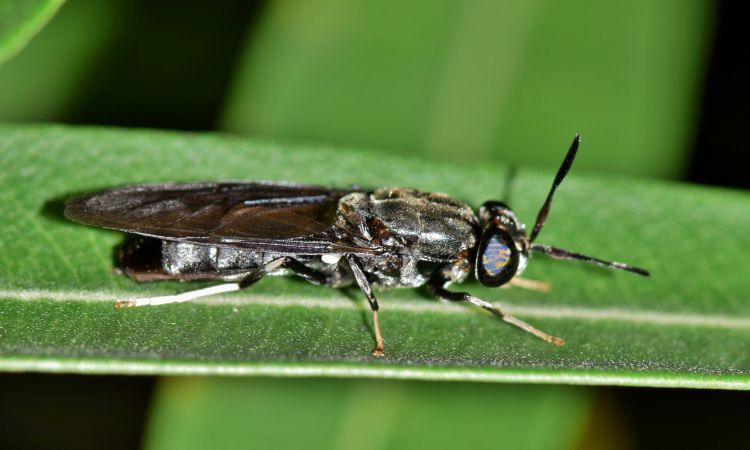 It’s no wonder why the demand for black soldier fly larvae farming is increasing. As the burden on the environment continues to grow, the meat industry will need to turn to alternative solutions such as insect farming to provide consumers with other organic protein sources. Read on to find out more about why farming black soldier fly larvae are becoming an increasingly popular practice!
It’s no wonder why the demand for black soldier fly larvae farming is increasing. As the burden on the environment continues to grow, the meat industry will need to turn to alternative solutions such as insect farming to provide consumers with other organic protein sources. Read on to find out more about why farming black soldier fly larvae are becoming an increasingly popular practice!
What is black soldier fly larvae farming?
Black soldier flies (or BSF for short) are a common type of fly, but compared to regular house flies, they are not pests at all. In fact, they play a key role in any ecosystem as pollinators or recyclers. They represent an ideal zero waste solution for those working in the agricultural industry, since they are very apt at decomposing the bacteria in their food, meaning there is no waste in their digested by-products.
The larvae of black soldier flies can also be farmed as either animal feed for livestock (poultry, swine, cattle, and so on), or as the basis for products for human consumption. At the larval stage, these insects consume as much as possible before entering the fly stage of their short life-cycle, and because of this, they are packed with valuable nutrients, and contain around 43% protein!
Why should I get into black soldier fly larvae farming?
There are many benefits to black soldier fly larvae farming. One of them is a growing demand among eco-conscious consumers, athletes, as well as pet and farm animal owners. Their high protein content and their low-impact farming make them a very attractive protein source for humans, and as an animal feed that does not require any deforestation to be available.
They also require very low input to be farmed efficiently and on a low budget, since they can easily decompose and process organic waste into inert substances. Coupled with their high reproduction rate and short life cycle, black soldier fly larvae need much less fodder to produce the same amount of meat compared to more traditional livestock like beef.
How should I get into black soldier fly larvae farming?
Naturally, you will have to set up a black soldier fly farm! You will need to find the right location, as mating conditions will be optimal in a setting that is warm and humid and gets enough sunlight. You will of course need to set up a cage as well with a clean water source and a box of organic matter as food.
Good news though: black soldier fly larvae are self-harvesting! Just before the final stage of their life cycle, the larvae will look for a dark and dry place. By using a ramp and a bucket, they will climb by themselves.
Also, to make the most out of their high protein content and valuable nutrients, you will also need the right equipment. Some companies sell onsite insect protein and fat processing machines that render the black soldier fly larvae into a dry powder.

